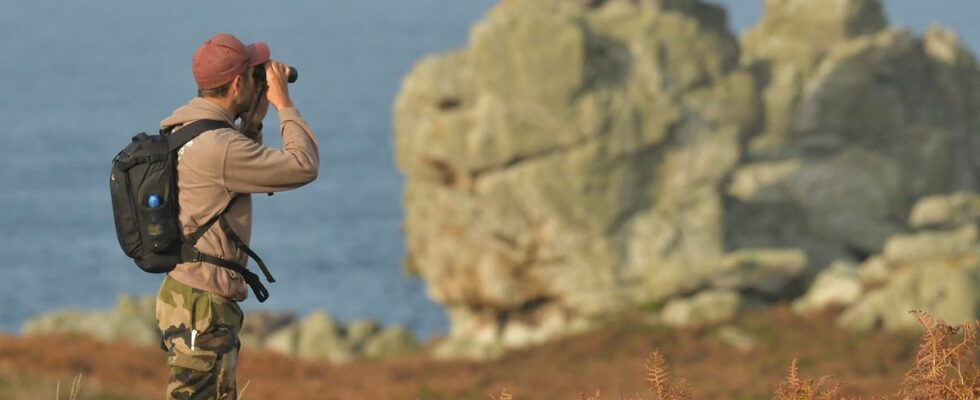Do you know the difference between a Pallas warbler and a fitis warbler, between a semipalmated sandpiper and an western sandpiper? If the answer is “no”, you are not part of the wedge community. Behind this strange name hides a tribe of ornithology enthusiasts who engage in a surprising competition in the middle of nature. Their goal ? Observe as many species of birds as possible to tick them off and climb the rankings. Because yes, there is a classification and even a regulation to frame the discipline. Previously, this was practiced with the help of a good old ornitho guide whose boxes were ticked with each new species observed. Everything is now done online on the website Cocheurs.fr which acts as a reference in France. “We launched this site in 2013 to provide a framework for this practice,” says Antoine Rougeron, one of the three founders. Because before, there was no verification and some took advantage of it to inflate their score, it was completely bogus! »
The site now has 1,600 subscribers, including around 500 who are particularly active. Crazy coach drivers who don’t hesitate to cross the whole of France in search of a new coach. Generally, the alert is given on Telegram or Whatsapp by one of the members who reports the presence of a rare bird in such a place. When the news falls, it is then the race to go as quickly as possible to the places of observation. And too bad if it is several hundred kilometers from his home. “One evening, I left Paris at 1 a.m. by car to go and observe a white-throated sparrow that had been reported in a small village in the Jura,” says Baptiste Magontier.
580 species of birds on the territory
For several months, this director followed in the footsteps of this community of sweet crazy people whose passion he tells in his documentary Wedges, broadcast this Thursday evening at 11:45 p.m. on the antenna of France 3 Bretagne. “You might think they are crazy, but they are above all gifted ornithologists who have acquired incredible skills,” he says. When his film was released in 2021, the latter also got into the game. With 350 checks on the counter, he believes that he “is starting to be a good checker. But he is still a long way from Laurent Spanneut, the French coche GOAT, who has already observed 508 different species of birds on French soil throughout his career as a coach driver.
Antoine Rougeron arrives two ranks behind with 494 ticks. “We progress very quickly at first and then we stagnate because there are fewer birds to discover,” he says. France has around 580 species of birds on its territory, but there are still several dozen to discover. The rarest of course, those that the community calls “blockers” such as the ichthyaete gull or the Dalmatian pelican which have only been observed once in France. “For a coachman, the ultimate dream is to discover a species for the first time in France,” says Antoine Rougeron. It’s a bit like an astronomy enthusiast discovering a star, it’s the holy grail! »
The island of Ouessant, “The Mecca of the coach”
Every self-respecting wedge-driver also has his cursed bird. The one for whom we hit the limits and we will wait for hours for peanuts. “Me, it’s the western sandpiper that I missed twice properly,” laughs Antoine Rougeron. But that’s what makes the tick exciting too because we’re on the living and we don’t control everything. Baptiste Magontier went in search of a Rüppell’s vulture observed recently between Lozère and Ardèche. “I was already there last weekend and I’m going back next weekend,” says the director-coach, who now lives in Normandy. When autumn comes, almost the entire community meets at the tip of Brittany, on the island of Ouessant to be precise. “It’s the Mecca of coaches,” says Antoine Rougeron. The place where we find the most rare birds. But it’s better to be in the south of France when it’s spring. »
Like any passion, the tick therefore requires time. But also money, because you have to be able to pay for travel. So many journeys, often by car, which pose quite a dilemma for these nature lovers. “It’s true that it’s not very ecological to cross France by car to observe a bird”, recognizes Antoine Rougeron. But mentalities are beginning to change within the community. More and more coachmen are now limiting themselves to their region for bird watching.
On the Cocheurs.fr site, new, greener classifications have also appeared, such as “zero carbon” or that with “reduced emissions”. “And we now make our list over a lifetime and no longer over a year as before,” concludes Baptiste Magontier.

